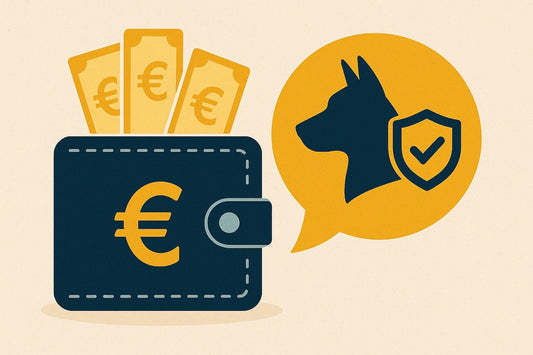The French Bulldog is a lovable dog breed that is very attached to its family and appreciated for its sturdy and compact appearance. Unfortunately, it is also predisposed to certain health conditions, including a herniated disc. In this article, we will examine this neurological condition, its causes and symptoms, as well as possible treatments to help your companion regain his well-being.
What is a herniated disc?
A herniated disc is a medical condition in which an intervertebral disc, located between the vertebrae of the spine, becomes displaced or bulged, putting pressure on the spinal cord. This compression can cause pain, muscle weakness, and loss of sensation in different parts of the body. In dogs, it can be the result of trauma, a degenerative process, or a genetic predisposition related to the breed.
Breeds predisposed to herniated discs
Certain dog breeds are particularly susceptible to developing herniated discs due to their body shape and genetic makeup. These breeds include brachycephalic breeds, which have flattened heads and short noses, such as the French bulldog. Dog breeds with long backs and short legs, such as dachshunds and basset hounds, are also prone to herniated discs.
The French Bulldog, a breed at risk
The French Bulldog belongs to the brachycephalic breed group and is at increased risk of neurological disorders such as herniated discs. In fact, the degenerative process of the intervertebral discs can be accelerated in this breed due to its particular morphology and the stresses placed on its spine. It is therefore essential to be attentive to the signs and symptoms of a herniated disc in your French Bulldog, in order to intervene quickly if necessary.
Symptoms of a Herniated Disc in French Bulldogs
Clinical signs of a herniated disc can vary depending on the location and severity of the herniation, but the following symptoms are commonly seen in affected dogs:
- Pain: The dog may express pain by crying, avoiding certain movements, or being more sensitive to touch in the affected area.
- Discomfort: The dog often exhibits unusual postures, such as a stiff gait, a tense neck, or an arched back position.
- Weakness: The dog may have decreased muscle strength and have difficulty climbing stairs, jumping, or even walking.
- Paralysis: In severe cases, compression on the spinal cord can cause complete or partial loss of mobility.
It is crucial to act quickly if you suspect a herniated disc in your French bulldog. Do not hesitate to consult a veterinarian as soon as the first symptoms appear to prevent the situation from getting worse and to put in place appropriate treatment.
Possible treatments for a herniated disc
Treatment for a herniated disc will depend on the severity of the condition and the dog's overall well-being. Here are some treatment options commonly used by veterinarians:
- Medication: Pain relievers and anti-inflammatory medications may be prescribed to relieve pain and inflammation associated with a herniated disc.
- Rest: Strict rest with restriction of movement is often recommended to limit the progression of the hernia and allow the intervertebral disc to stabilize.
- Physiotherapy: Physical rehabilitation is an important part of disc herniation treatment, aimed at improving mobility and strengthening the muscles that support the spine.
- Surgery: In some cases, surgery will be necessary to remove the herniated disc and relieve pressure on the spinal cord.
The veterinarian will determine the most appropriate treatment based on the clinical examination, the symptoms expressed and the results of additional examinations such as X-rays or magnetic resonance imaging (MRI).
Preventing Herniated Discs in French Bulldogs
Although it is not always possible to completely prevent herniated discs, there are a few steps you can take to limit the risk in your French Bulldog:
- Maintain a healthy weight: Excess weight puts extra pressure on the spine and can contribute to the development of herniated discs. Make sure to provide your dog with a balanced and appropriate diet, avoiding excessive treats and encouraging regular physical exercise.
- Adapt activities: Avoid subjecting your dog to intense physical exertion or sudden movements that could increase compression of his spinal cord.
- Regular Monitoring: Be sure to visit your veterinarian regularly for routine checkups and don't hesitate to raise concerns if you notice any changes in your French Bulldog's behavior or mobility.
In short, a herniated disc is a neurological condition that should not be taken lightly in French bulldogs . It is important to be vigilant for signs and symptoms suggesting this health problem and to consult a veterinarian promptly if you suspect it. Proper treatment will generally allow your four-legged friend to regain his well-being and joy of life.







